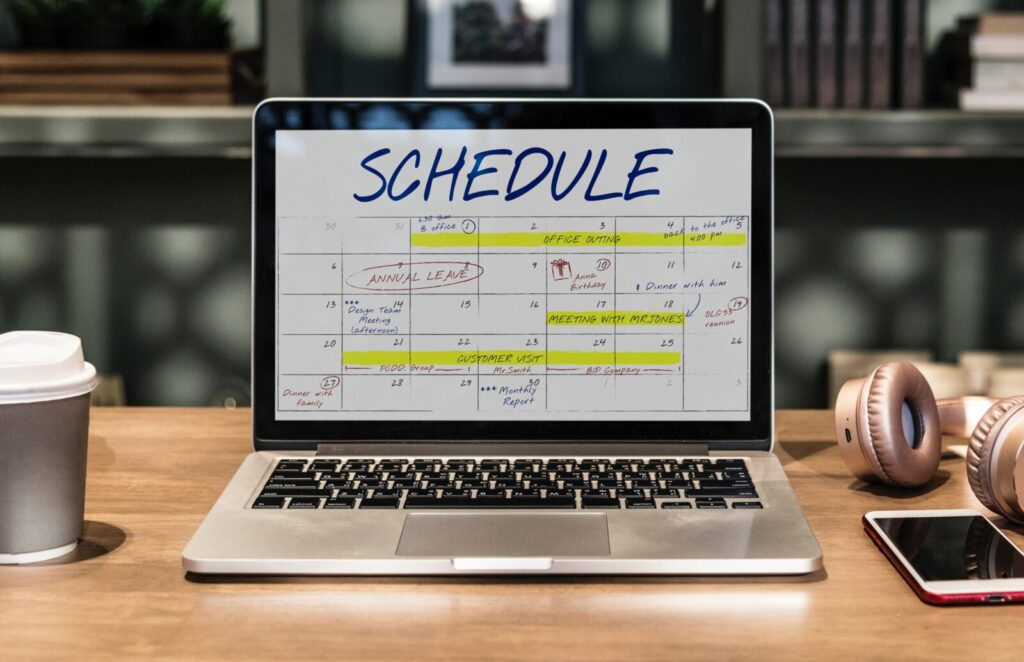Let’s review three actions you can take to ensure that your actual use of time reflects your true priorities.
1. Enlist your most important goals in your key roles for the next 6 months
We have several roles both at work and in our private life. We are specialists, functional managers, people managers, team members, and leaders or sponsors of projects. We hold various family and community roles, and we should never forget that refuelling ourselves physically, mentally, emotionally and spiritually is also a critical role that enables us to fulfil all the other roles sustainably. When you want to defend you calendar, it helps a lot if you have a list of your most important mid-term goals in each of your roles and that you remind yourself of them on a weekly basis, as put forward by Steven Covey. Anything else should only be added to your schedule if there is a very strong reason for it. Otherwise most of your time should be devoted to activities closely related to your highest priority goals.
2. Determine what will be a definite “yes” and a definite “no” for you
When my clients struggle and juggle with their numerous tasks and activities, I often ask them to first define what they want to say “yes” to. These are often linked to certain people, projects, responsibilities or goals that are the most important for them. Then I ask the client to enlist what they will definitely say “no” to. It immediately becomes evident, how many things they actually do what they don’t value highly. Finally, we discuss grey areas and identify cues that help the client tilt his or her decision in either direction. By making these clear, it will be much easier to refuse anything that doesn’t fall into the “yes” category.
3. Qualify each meeting request
People, especially in large organisations, tend to call a meeting no matter if it is necessary or not, inviting whoever they think should be there. Therefore, everybody ends up in meetings from dusk till dawn, not leaving time to actually do what they really want to. If you wish to defend your calendar, you simply can’t afford to accept meeting requests that you are not sure to create value, or where you feel that there would be a more efficient way from your side to contribute. Asking a few questions regarding the goal of the meeting and/or what is expected from you helps to decide how you can best add your part.
I am not saying that you can spend one hundred percent of your time with the priorities you define. Also, sometimes those priorities include assisting others with their goals. The point is to increase the proportion of time that you control and utilise to serve whatever is important for you. And that only happens when you effectively defend your calendar.
Act2Manage Application
An interactive, gamification-based, practice-oriented leadership development application that provides immediate help and enables follow-up to the most common dilemmas.







